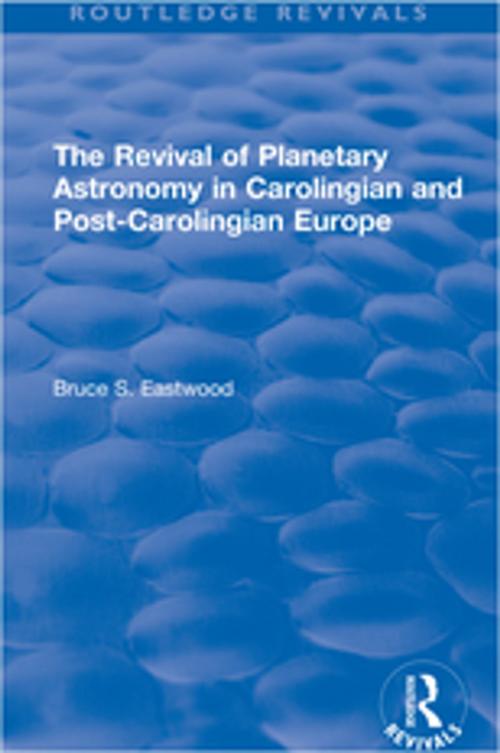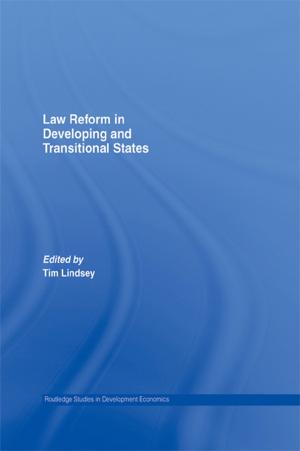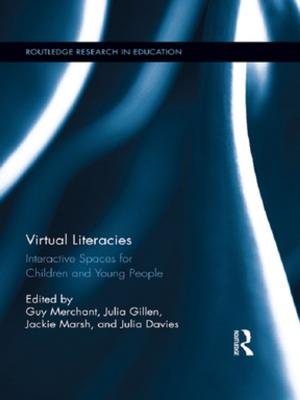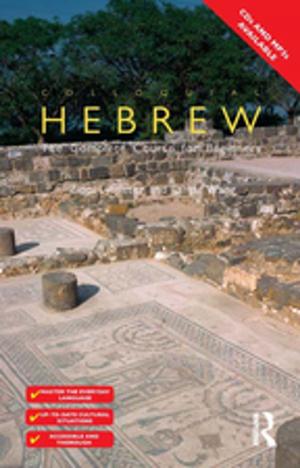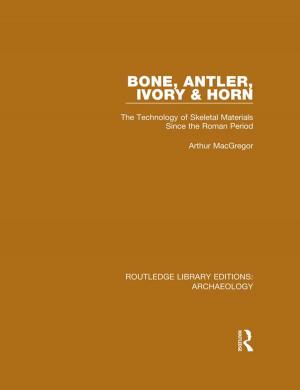| Author: | Bruce S. Eastwood | ISBN: | 9781351744188 |
| Publisher: | Taylor and Francis | Publication: | November 1, 2017 |
| Imprint: | Routledge | Language: | English |
| Author: | Bruce S. Eastwood |
| ISBN: | 9781351744188 |
| Publisher: | Taylor and Francis |
| Publication: | November 1, 2017 |
| Imprint: | Routledge |
| Language: | English |
This title was first published in 2002: Before the introduction of Greco-Arabic mathematical astronomy in the 12th century, what astronomy was there in the medieval West? While we know of developments in computus, which calculated with solar and lunar cycles to create Christian calendars, and in monastic time-telling by the stars, was anything known of the five planets? Using glosses, commentaries, and diagrams to the early manuscripts of four classical Latin authors - Pliny, Macrobius, Martianus Capella, and Calcidius - Bruce Eastwood provides evidence for the extensive development of the sixth liberal art, astronomy, from the time of Charlemagne forward, with a particular focus on the diagrams used and invented by Carolingian and later scholars. Learning to understand the motions of planets in terms of spatial, or geometrical, arrangement, they mined these Roman writings for astronomical and cosmological doctrines, in the process not only absorbing but also creating models of planetary motions. What they accomplished over three centuries was to establish a basic set of models that showed the reasoned order of the planets in the heavens.
This title was first published in 2002: Before the introduction of Greco-Arabic mathematical astronomy in the 12th century, what astronomy was there in the medieval West? While we know of developments in computus, which calculated with solar and lunar cycles to create Christian calendars, and in monastic time-telling by the stars, was anything known of the five planets? Using glosses, commentaries, and diagrams to the early manuscripts of four classical Latin authors - Pliny, Macrobius, Martianus Capella, and Calcidius - Bruce Eastwood provides evidence for the extensive development of the sixth liberal art, astronomy, from the time of Charlemagne forward, with a particular focus on the diagrams used and invented by Carolingian and later scholars. Learning to understand the motions of planets in terms of spatial, or geometrical, arrangement, they mined these Roman writings for astronomical and cosmological doctrines, in the process not only absorbing but also creating models of planetary motions. What they accomplished over three centuries was to establish a basic set of models that showed the reasoned order of the planets in the heavens.
